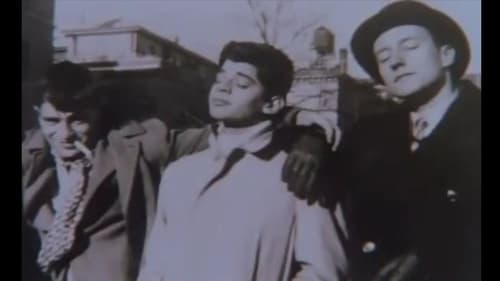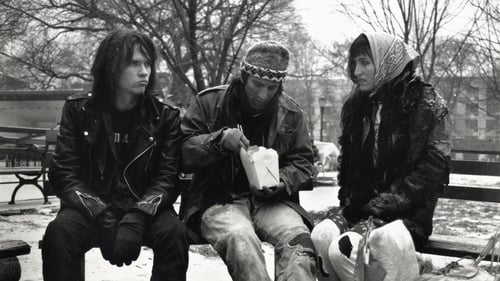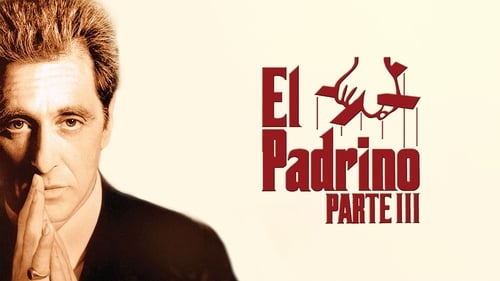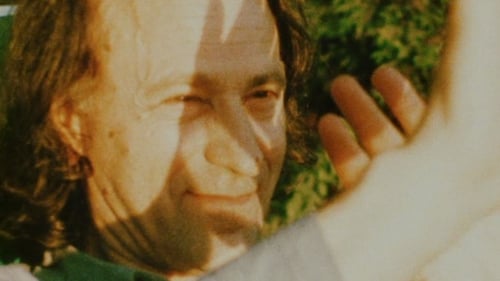Gregory Corso
Nacimiento : 1930-03-26, New York, New York
Muerte : 2001-01-17
Historia
Gregory Nunzio Corso was an American poet, youngest of the inner circle of Beat Generation writers.

Self
Traces the Beats from Allen Ginsberg and Jack Kerouac's meeting in 1944 at Columbia University to the deaths of Ginsberg and William S. Burroughs in 1997. Three actors provide dramatic interpretations of the work of these three writers, and the film chronicles their friendships, their arrival into American consciousness, their travels, frequent parodies, Kerouac's death, and Ginsberg's politicization. Their movement connects with bebop, John Cage's music, abstract expressionism, and living theater. In recent interviews, Ginsberg, Burroughs, Kesey, Ferlinghetti, Mailer, Jerry Garcia, Tom Hayden, Gary Snyder, Ed Sanders, and others measure the Beats' meaning and impact.

Himself
This is a video record of the Buddhist Wake ceremony at Allen Ginsberg's apartment. You see Allen, now asleep forever, in his bed; some of his close friends; and the wrapping up and removal of Allen's body from the apartment. You hear Jonas' description of his last conversation with Allen, three days earlier. You see the final farewell at the Buddhist temple, 118 West 22nd Street, New York City, and some of his close friends: Patti Smith, Gregory Corso, LeRoy Jones-Baraka, Hiro Yamagata, Anne Waldman, and many others.

Hotel Desk Clerk
After a family tragedy, a young woman finds herself homeless and living on the streets of New York.

Unruly Stockholder
Michael Corleone, heredero del imperio de don Vito Corleone, intenta rehabilitarse socialmente y legitimar todas las posesiones de la familia negociando con el Vaticano. Después de luchar toda su vida se encuentra cansado y centra todas sus esperanzas en encontrar un sucesor que se haga cargo de los negocios. Vincent, el hijo ilegítimo de su hermano Sonny, parece ser el elegido.

Himself
Maria Beatty's documentary exploring the insights and influences of the American Beat Poets. The film conveys their consciousness and sensibility through interviews with William Burroughs, Allen Ginsberg, Diane Di Prima, among others. Also weaves in additional commentary from contemporary musicians, poets and writers such as Marianne Faithfull, Richard Hell, Lydia Lunch and Henry Rollins. Also expands upon how the poets reached new levels of creativity and inspired social change.

Self
A film collage tracing the story of the lives, loves, and deaths within the artistic community surrounding Jonas Mekas.


HImself
After World War II a group of young writers, outsiders and friends who were disillusioned by the pursuit of the American dream met in New York City. Associated through mutual friendships, these cultural dissidents looked for new ways and means to express themselves. Soon their writings found an audience and the American media took notice, dubbing them the Beat Generation. Members of this group included writers Jack Kerouac, William Burroughs, Allen Ginsberg. a trinity that would ultimately influence the works of others during that era, including the "hippie" movement of the '60s. In this 55-minute video narrated by Allen Ginsberg, members of the Beat Generation (including the aforementioned Burroughs, Anne Waldman, Peter Orlovsky, Amiri Baraka, Diane Di Prima, and Timothy Leary) are reunited at Naropa University in Boulder, CO during the late 1970's to share their works and influence a new generation of young American bohemians.

Himself
A short film documenting what was referred to as "The International Poetry Incarnation". It was billed as Great Britain's first full-scale "happening", with the world's leading Beat poets together under one roof at the Royal Albert Hall on June 11, 1965, for an evening of near-hallucinatory revelry. It came to be seen as one of the cultural high points of the Swinging Sixties.

Himself
The couch at Andy Warhol's Factory was as famous in its own right as any of his Superstars. In Couch, visitors to the Factory were invited to "perform" on camera, seated on the old couch. Their many acts-both lascivious and mundane-are documented in a film that has come to be regarded as one of the most notorious of Warhol's early works. Across the course of the film we encounter such figures as poets Allen Ginsberg and Gregory Corso, the writer Jack Kerouac, and perennial New York figure Taylor Mead.

Director
A film by Gregory Corso and Jay Socin

Gregory
Pull My Daisy is a film that typifies the Beat Generation. Directed by Robert Frank and Alfred Leslie, Daisy was adapted by Jack Kerouac from the third act of his play, Beat Generation; Kerouac also provided improvised narration.








